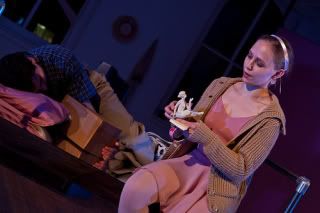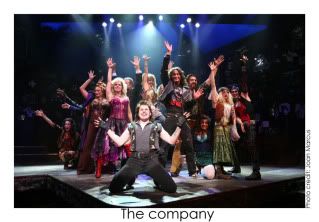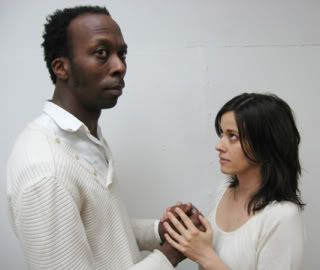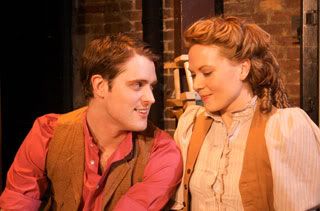 photo: Liz Lauren
photo: Liz LaurenDesire under *what* elms, you might ask: there isn't a one anywhere in sight in this overheated tricked-out O'Neill revival, directed with a heavy-handedness (by Robert Falls) that brings the play's tragedy dangerously close to melodramatic camp. It doesn't quite get there but there are plenty of moments you'd be excused a hoot or two. O'Neill's play, like his Mourning Becomes Electra, re-sets Greek tragedy in twentieth century New England - in this case Dad takes a young new bride who falls in immediate mutual love-hate lust with her new stepson, her one rival for the old man's farmland. Falls seems to play the characters as archetypes in a grand operatic tragedy, but he revels in the young ones' lust so salaciously that it's hard to take it any more seriously than As The World Turns. Brian Dennehy does fine, commanding work as the old contemptuous farmlord, but Falls pulls focus from one of his most dramatic monologues by simultaneously staging a hot and heavy pantomime for the lovers. Carla Gugino, sounding more and more like Judy Davis, couldn't be better but Pablo Schreiber, who strips naked in the one of the play's too-stylish wordless interludes, could find more layers as the hotheaded son.



























